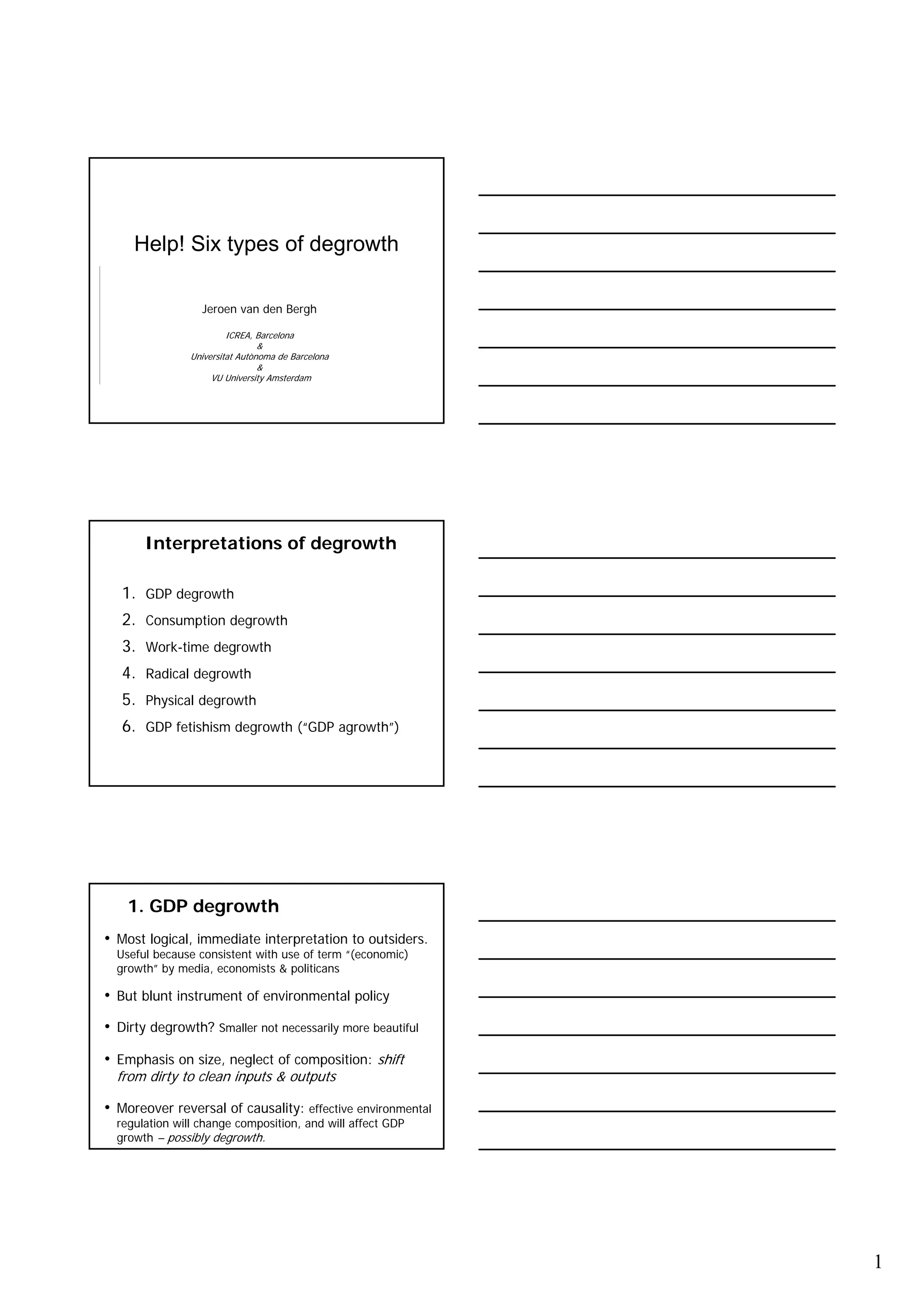The document summarizes six different interpretations of the concept of "degrowth": 1) GDP degrowth, 2) consumption degrowth, 3) work-time degrowth, 4) radical degrowth, 5) physical degrowth, and 6) GDP fetishism degrowth. It analyzes each interpretation and argues that types 1, 2, and 4 are not very convincing, while type 5 is not new. It concludes that type 3 makes the most sense and that focusing on effective environmental policies and democratic support for such policies is more important than whether they lead to GDP growth or degrowth.

![2. Consumption degrowth
• In quantity not value terms
• Hoped to cause sustainable resource use & pollution
• Ineffective and inefficient way to reach
environmental sustainability: underrates shift from
dirty to clean consumption (again composition neglected)
• Two approaches to realize consumption degrowth:
– (voluntary) frugality – likely to reach the masses?
– equal individual quota – politically feasible?
3. Work-time degrowth
• Increased labor productivity has been mainly used to
consume more rather than to work less
• Working less means less production & lower wages,
so less consumption, but also less work stress and
more happiness due to more leisure and time for
family and friends, certainly beyond a threshold
income (finding of happiness research)
• “Less work-time” is concrete, one-dimensional aim
unlike “less consumption” (multidimensional)
• Less working/income limits consumption rebound
4. Degrowth as radical change of
the economy
• Ethics, values, finance, markets, work/jobs, money,
or even profit-making & ownership
– “Escaping from the [capitalist] economy” (Fournier 2008)
• Grand ideas without thorough supporting analysis
– No systemic solutions/instrumentation, unclear how to
upscale from niche to society
– Humanistic left-wing ideology attractive: equality,
solidarity, citizenship, locality, “good life”
• Convergence to new system much time & unsure
to meet environmental aim (“no ecological imperative”)
• Notably climate change demands urgent, simpler
strategy: hard environmental constraints to which
economy will adapt
2](https://image.slidesharecdn.com/degrowthlecture-jvandenbergh-100411120953-phpapp01/85/Help-Six-types-of-degrowth-2-320.jpg)


